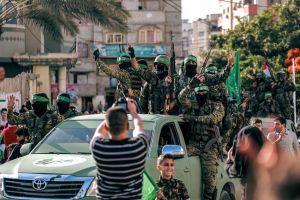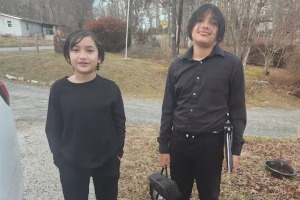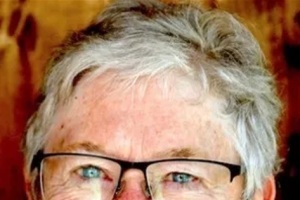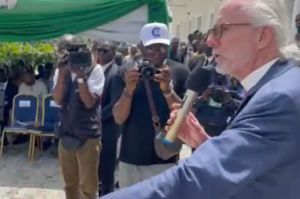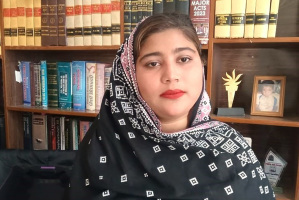Gunmen storm Sunday church service in Burkina Faso, kill at least 14 including pastor, children
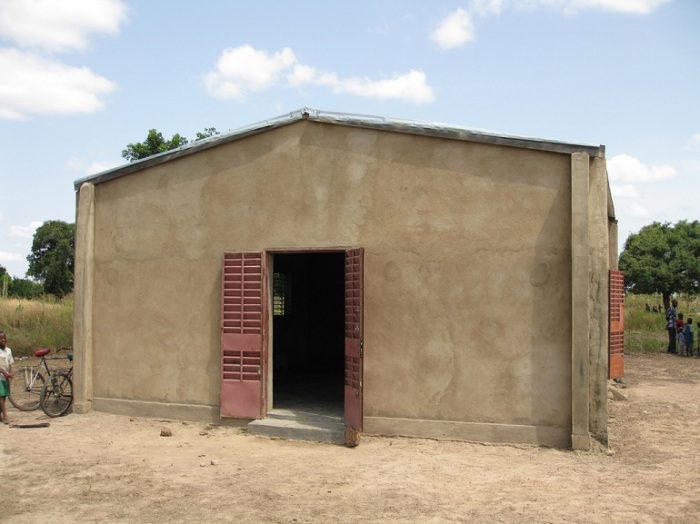
Suspected Muslim extremists launched an attack on a church in eastern Burkina Faso on Sunday morning, killing at least 14 people and wounding several others, the government said.
The attack took place in the village of Hantoukoura near the border with Niger in the East region, according to a report from the AFP news agency. After spraying bullets into the congregation during the Sunday service, the assailants fled on motorbikes.
A security source told the outlet that armed individuals carried out the attack, "executing the faithful including the pastor and children.”
On Sunday, President Roch Marc Christian Kabore announced the news on Twitter and condemned “the barbaric attack” in the town of Hantoukoura. He said several people also were wounded.
Kabore offered his “deepest condolences to the bereaved families and wish a speedy recovery to the wounded.”
Burkina Faso’s armed forces were caring for the wounded and searching the area, the government also said in a statement.
While no group has claimed responsibility for the attack, fighters linked to the Islamic State and al-Qaeda have carried out attacks on police stations, military posts, and civilian targets in Burkina Faso since 2015, according to Human Rights Watch. While jihadists have launched attacks across the country’s north for years, they recently have struck in the east as well.
According to the Africa Center for Strategic Studies, such attacks have quadrupled over the last two years in Burkina Faso and left dozens dead this year alone. Additionally, an estimated 500,000 people have been forced from their homes amid the unrest, according to the United Nations.
Sunday’s massacre follows a series of attacks by radical Islamist insurgents against Christians in the embattled West African country. The country of 19 million is about two-thirds Muslim, with a Christian minority.
In June, gunmen stormed a village in northern Burkina Faso and ordered people who had been chatting outside to lie down. The armed assailants then executed four Christians found to be wearing crucifixes around their necks.
In May, a Catholic church was attacked in the northern town of Dablo, where gunmen also killed a pastor and five churchgoers, some of whom were church elders.
Also in May, four Catholics were killed during a procession with a statue of the Virgin Mary in the northern municipality of Zimtenga in the country’s Bam province.
In April, a pastor and five churchgoers were killed in the town of Silgadji in the northern part of the country. At the time it was believed that the Silgadji church attack was the first to target a church in Burkina Faso, a nation where Muslims and Christians largely have coexisted.
In February, a 72-year-old priest was murdered by jihadists on the border at Nohao. That same month, a 54-year-old pastor was killed on the road between Tasmakatt and Gorom-Gorom.
In September, the Catholic Charity Aid to the Church in Need reported that Islamic extremists issued an ultimatum to Christian villagers in Loroum villages of Hitté and Rounga.
The villagers were reportedly ordered to leave their homes within three days or convert to Islam. As a result, over 2,000 people have fled from those two villages alone.
“They are by no means the only ones facing this situation,” the source was quoted as saying at the time. “[R]ather, they are just part of a program by the jihadists who are deliberately sowing terror, assassinating members of the Christian communities and forcing the remaining Christians to flee after warning them that they will return in three days’ time — and that they do not wish to find any Christians or catechumens still there.”
Chrysogone Zougmore, president of the Burkinabe Movement for Human and Peoples’ Rights, a victim advocacy group in the country’s capital, Ouagadougou, told The Washington Post that attacks on Christians are a strategy to stoke religious tensions in a country known for its peaceful coexistence between different religious and ethnic groups.
“They are planting seeds of a religious conflict,” Zougmore said. “They want to create hate. They want to create differences between us.”

















